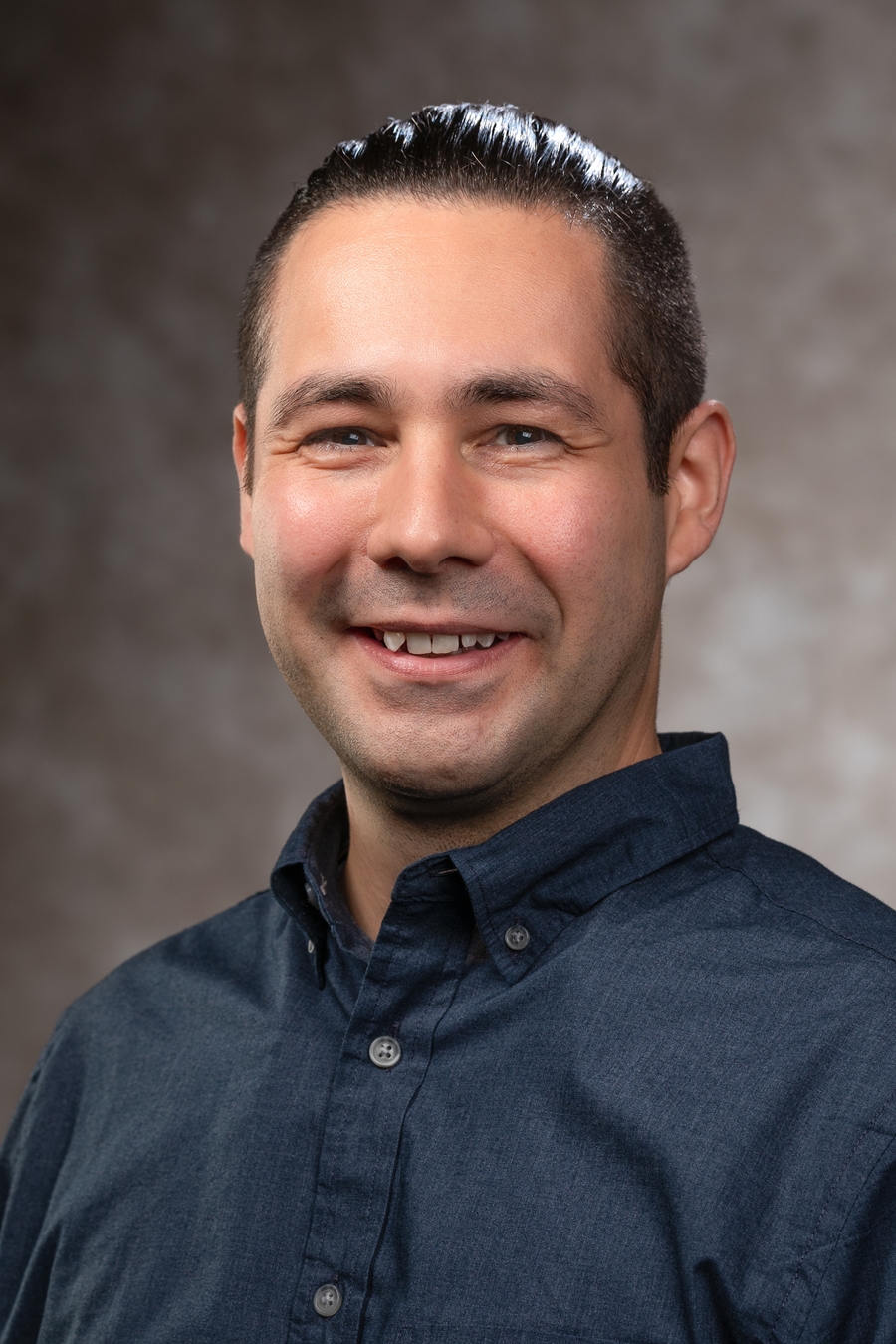Benjamin Ramirez has joined the Multicultural Center as its newest multicultural program coordinator, a position engaged in the development and facilitation of intersectional diversity learning opportunities and community building. Ramirez specializes in Native and Indigenous culture, history, and experience. He will serve students and student groups with culturally responsive support, fostering a welcoming environment and affirming all identities and lived experiences.
"I was lucky to have met a few Indigenous staff and faculty before I thought about joining the Multicultural Center," Ramirez said. "I was happy to learn about the efforts being made by the University of Arkansas to increase awareness of Indigenous peoples on its campus. I am excited to be part of the growth and development of potential programs, training, and other events where Indigenous peoples of the Americas are being discussed. I hope to create programs that make Indigenous students feel welcomed and supported as they move through their academic careers. Some of the current programs I am thinking about include culture, community, and connections such as listening circles and storytelling, along with Indigenous history and current issues Indigenous communities are facing locally, nationally, and internationally. I also hope to co-create a community of learners who are sincere in their desire to learn more about Indigenous peoples."
Benjamin Ramirez has experience as a college professor, programming, research/project development and works with Native and Indigenous communities on a personal and professional level. As an urban Ojibwe man, he wants to continue to learn, and reclaim, the Ojibwe language and Ojibwe cultural traditions and use them to continue to shape who he is personally and professionally. This informs how he interacts with students, faculty, and staff.
"Ben is focused on creating diverse, equitable, and inclusive learning environments," said Adrain Smith, director of the multicultural center. "Already he is helping us learn and grow in our commitment to recognize and value the historical and present importance and contributions of indigenous peoples and students on our campus. He is going to make a tremendous impact."
Ramirez earned his B.S. in anthropology at Central Michigan, and his M.A. in language, reading and cultural from the University of Arizona in 2018. He is completing his Ph.D. in teaching, learning, and sociocultural studies with a minor in language and literacy from the University of Arizona. His dissertation is titled "The (De)colonization of Memory: A Critical Analysis of United States History Textbooks and the Struggle for Indigenous Futurity."
"While I was a teaching assistant, I had the opportunity to work with diverse students in different classroom settings," he said. "While discussing Indigenous history with pre-service social studies teachers, I was simultaneously thinking about my dissertation research which led me to examine the prominence of settler narratives in high school history textbooks. Precisely due to the fact the students typically rely on them as their knowledge base for Indigenous peoples in the United States. Each of these experiences taught me the importance of patience and the change that comes with learning new information. The Medicine Wheel Teachings have been powerful in both of those realms. In the personal realm, I have learned how to see myself in relation to others. The Medicine Wheel Teachings have provided powerful avenues of empathy and sympathy with other people. Professionally, it has allowed for different forms of analyses and solutions on issues to develop. In other words, the Medicine Wheel Teachings inform how I interact with all those relations in the world."
About his first month with the Multicultural Center, Ramirez said, "Our collective goal is to make you feel welcomed, respected, and supported. We are all willing to work with you, with each other, and with other staff and faculty to make sure this happens. It is my hope to assist in creating a campus climate that is much more receptive to Indigenous students, and a campus that recognizes the local and national histories along with the contributions of Indigenous peoples."
Contacts
Adrain Smith, director
Center for Multicultural and Diversity Education
479-799-3968, atsmith@uark.edu
